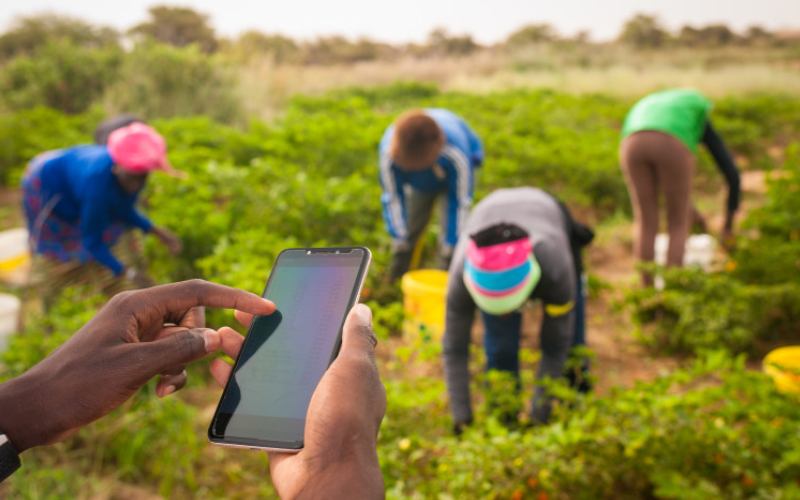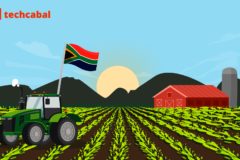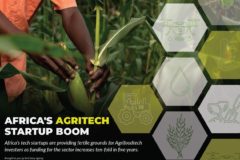This story was contributed to TechCabal by Seth Onyango/bird story agency
Digital-savvy farmers in Africa are tapping social media platforms to network, learn and find new buyers for their products, outside traditional markets, according to a report.
More farmers in Kenya are sidestepping middlemen and using Meta platforms to take their fresh tomatoes, avocados, kale and other products straight to consumers’ doorsteps.
Research firm Caribou Digital’s latest report found that farmers are also getting information about best farming practices from their peers, through shared online video tutorials.
Dubbed Social Agriculture: young farmers, social media, and the digital transformation of agriculture, further shows there are more people using Facebook for agriculture than all dedicated agricultural platforms in Kenya.
These include Facebook groups like Digital Farmers of Kenya and the Young Farmers Forum, on WhatsApp.
“Based on an industry-standard estimate that 22.5% of 33 million registered users are active, digital agriculture platforms have an estimated active user base of approximately 7.5 million in Kenya; Wefarm, a popular digital agriculture platform, had 1.4 million users in 2018,” reads the Mastercard Foundation-sponsored report, in part.
“Facebook advertising indicates that the number of users interested in agriculture is estimated to be 9.3 million. In other words, despite any concerted marketing efforts, the number of people using social media platforms for agriculture in Kenya is higher than the total active users of dedicated digital agricultural platforms.”
Growth in social agriculture in Kenya comes amid rapid smartphone adoption, reliable internet connection and mobile payments services that have made e-commerce vibrant in that market.
In 2020, mobile phone penetration among adults in Kenya was 98 per cent and according to the Communications Authority of Kenya’s (CA) sector statistic report for the quarter ending September 2021, 59 million mobile phone devices were connected to mobile networks in the country.
Of that number, 33 million were feature phones while 26 million were smartphones, putting the penetration levels at 67.9% and 53.4% respectively.
As of 2020, 43% of all adults were using the internet (96% of them on smartphones rather than computers) and 17% of all adults were using social media (98% of them on smartphones).
It is hardly surprising, then, that farmers are turning to social media to find new markets for their produce, which includes supplying to hotels and supermarkets.
Caribou’s report notes that digital platforms are also grooming would-be entrepreneurs who are turning to agriculture to earn a living. “Social agriculture” has lowered the barriers to gaining expertise and helped online communities of farmers develop new avenues of monetization – including through online influence.
“Influencers who promote social agriculture frame agriculture as a livelihood relevant to the digitally connected and introduce agriculture to people who might not otherwise consider an agricultural livelihood,” the report notes.
“The increased visibility of agriculture is important because it makes farming more attractive to people who might not be able to access white collar jobs and brings people with the education and digital literacy required to translate agriculture innovation into practice.”
Caribou says their findings in Kenya point to the growth potential of social agriculture in Africa.
“It has a strong payments infrastructure, which has enabled some of the e-commerce applications common in China. Many Facebook agriculture groups that are now pan-African began in Kenya,” it said.
“Social agriculture” also appears to address some gender imbalances by offering opportunities to women agriculturalists, just as it does for men.




















